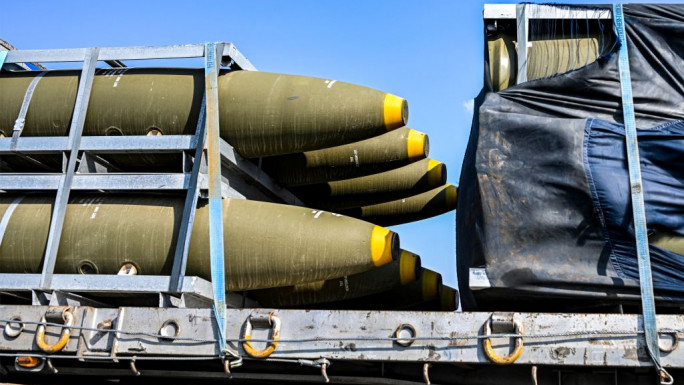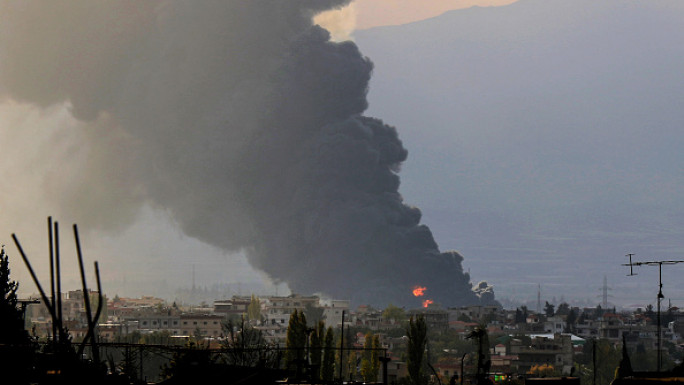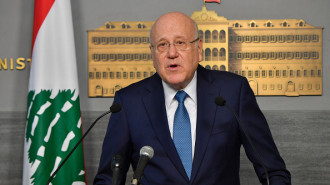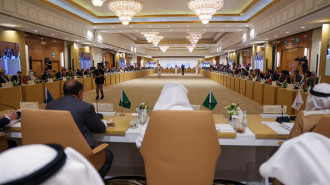UNHRC votes in favour of Israel arms embargo, Bahrain abstains
The motion secured the support of some European countries but was rejected by Bahrain who had previously supported such measures.
The resolution passed 32-6 and contains strong language against Israel's human rights practices and calls for UN member states to stop transferring arms where "there is a clear risk that such arms might be used to commit or facilitate serious violations or abuses of international human rights law or serious violations of international humanitarian law".
In total, six countries - Austria, Brazil, Bulgaria, Cameroon, Malawi, and Togo - opposed the resolution, while Bahrain, for the first time, was absent.
Previous resolutions criticising Israeli practices and human rights violations received high levels of support from Bahrain.
|
|
Israel and Bahrain normalised relation in September 2020.
Other abstentions included: The Bahamas, the Czech Republic, India, Marshall Islands, Nepal, Philippines, Ukraine and the UK.
In a reversal of typical voting patterns, a number of European countries who had previously chosen to abstain from votes critical of Israel instead voted in support of the measure.
Denmark, France, Germany, Italy, the Netherlands and Poland all voted in favour of the resolution.
In the past, European countries have been critical of the number of repetitive texts and the standing mandate to debate allegations of Israeli human rights violations at every session. A merging of Item 2 and Item 7 on the agenda resulted in increased support for the resolution.
The text of the resolution, dubbed the accountability resolution, calls for countries to half the supply of arms to Israel where it is known they are being used to commit human rights violations.
Prior to the vote, last Thursday, UN High Commissioner for Human Rights Michele Bachelet said that her office had prepared three reports regarding Israeli activity against Palestinians.
"In the vast majority of cases monitored and documented by my office, Palestinians were killed or injured while appearing to pose no imminent threat of death or serious injury in the West Bank, including east Jerusalem,” said Bachelet.
Following the vote, Austria's envoy Elisabeth Tichy-Fisslberger, speaking on behalf of the EU, thanked the Palestinian Authority for agreeing to merge resolutions.
"We wish to thank the mission of Palestine for its engagement and efforts on this and other resolutions…We recognise the considerable efforts made by the Palestinian mission and look forward to continued engagement with them in a positive spirit,” she said.
Palestine's ambassador to the UN in Geneva, Ibrahim Khraishi, hit back at allegations that it was unfairly attacking Israel, and insisted that the calls for accountability will continue.
Read more: Is the ICC the new frontier of Israeli exceptionalism?
"The issue of Palestine is an issue of foreign occupation for over 45 years. The idea of accountability, remedy and reparation should be a consensual matter for all countries," he said.
Israel's ambassador, Meirav Eilon Shahar, said that even with the merging of the resolutions, it still represented a bias against Israel.
"When I look through this resolution, I am amazed that members of the Council could ever consider this a fair and balanced resolution. It does not reflect the reality on the ground, and if anything this resolution will contribute to the polarisation of the conflict," Elion Shahar said.
She also lambasted the resolution for making no mention of Hamas.
Follow us on Facebook, Twitter and Instagram to stay connected
![UNHRC Israel [Getty] UNHRC Israel [Getty]](/sites/default/files/styles/large_16_9/public/media/images/CC95A5AD-92FD-4714-AB8B-977BB883CEAB.jpg?h=d1cb525d&itok=XODndCXN)




 Follow the Middle East's top stories in English at The New Arab on Google News
Follow the Middle East's top stories in English at The New Arab on Google News


